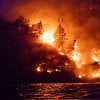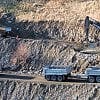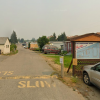KelownaNow reached out to all Member of Parliament candidates running in the 2015 Federal Election in the South Okanagan - West Kootenay riding and asked them questions pertaining to their electoral district.
Responses received from those running in the South Okanagan - West Kootenay riding will be posted live on KelownaNow.com between September 21st and September 25th in a randomly selected order.

1. Why are you best suited to represent our region federally?
First, I have a deep history in this riding; I was born and raised in Penticton and have lived here most of my life. I’ve had my own consulting in the south Okanagan for the past 20 years. Secondly, I have a lot of experience throughout British Columbia, having written a dozen books about the province and having served for 12 years on the BC Environmental Appeal Board. The latter role taught me how the lives of citizens are directly affected by the actions of government, it taught me how to listen well, and it taught me to write fair decisions. Thirdly, most of my work is at the national level, much of it with civil servants at all levels and even some CEOs of large corporations, so I have a good idea how this country works.
2. The South Okanagan-West Kootenay riding is brand new and is made up of three previous ridings. How would you view the key issues of this new riding, made up of several smaller municipalities, and work to make it a top priority in Ottawa?
While South Okanagan-West Kootenay is a diverse riding, our communities share many concerns. They want us to focus on stimulating the economy and creating good jobs, while protecting the environment and tackling climate change. I will work hard to be a strong voice in Parliament for this region, promoting the renewable energy sector, high tech, tourism and other priorities highlighted by community leaders.
3. Many of the municipalities in the South Okanagan-West Kootenay riding have smaller populations. How would you attract population and economic growth to this region?
Many of the good jobs in this riding are created by small businesses, and this sector presents the best opportunities for economic growth here. The NDP will invest in community infrastructure, lower the small business tax rate by 2 per cent and help working families with affordable childcare. We want to keep skilled, well-paid jobs in the region by retaining services in rural communities, kick-starting manufacturing projects and investing in renewable energy.
4. How will your party support the provincial/national economy? Do you think the Canadian economy is slumping into a recession?
Yes, Canada is in a recession. We need to diversify our economy, since manufacturing and others sectors have suffered under 10 years of government policy that concentrated on the oil and gas industry. We want to rebuild the middle class by helping local small businesses, investing in community infrastructure projects, providing a new Innovation Tax Credit and reduced small business tax.
5. What is your stance on legalizing marijuana in Canada?
New Democrats have long said that no one should be going to jail or be stuck with a criminal record for possession of marijuana for personal use. We have pledged to decriminalize possession of small amounts of marijuana immediately. When it comes to marijuana, we need an approach that focuses on health promotion, public education, and safety. It’s been 40 years since the LeDain Commission looked into the non-medical use of drugs and successive Liberal and Conservative governments have done nothing to update the government’s understanding of marijuana use in Canada today.
6. How are you planning on building and maintaining a political relationship with local First Nations?
Tom Mulcair believes that we must make it a priority to build a nation-to-nation relationship with Indigenous peoples. Words matter, but so do actions. After a decade as Prime Minister, Stephen Harper still refuses to call a national inquiry into the issue of missing and murdered Indigenous women and has left First Nations in many communities with deplorable living conditions. Tom’s plan will help make life better for First Nations. The NDP will consult and take action on the recommendations of the Truth and Reconciliation Commission, improve on-reserve housing, roads and drinking water, ensure every child gets the best start in school possible, call an inquiry into the issue of missing and murdered Indigenous women, and implement the UN Declaration on the Rights of Indigenous Peoples.
7. British Columbia is suffering from a doctor shortage, what steps do you have in place to address this issue?
Doctors are looking for opportunities in regions with up-to-date hospital infrastructure and well-supported health care systems. The NDP will negotiate a new Canada Health Accord with the provinces to replace the accord that the previous government let lapse, and reconstitute the Health Council of Canada, which had encouraged coordination, efficiencies and innovation. These two initiatives will provide more and better-targeted funding for health care across the country. Respecting provincial roles, we will lead strategies to improve health care and make it more sustainable over the long term.

8. What are your thoughts and what would you do about the proposed national park in the South Okanagan-Similkameen?
I believe that the proposed National Park could be a great benefit to the region and has the support of most local residents, but any effort to restarting talks with the provincial government would have to involve many partners including First Nations, local communities, ranchers, and other groups directly involved with that landbase. Former NDP MP Alex Atamanenko publically urged the Provincial Environment Minister to resume talks with the Federal Government on the National Park and I would carry that message forward.
9. Wildfires have been plaguing B.C. for the better part of 2015, pushing our expenditures into the hundreds of millions, how will you push for more federal involvement in terms of funding, resources, etc.?
The frequency, intensity and costs of natural disasters in Canada have been increasing since the 1970s, but the Conservatives have made it harder for provinces to seek the assistance they require when disaster strikes. The Conservative decision to cut the Joint Emergency Preparedness Program (JEPP) and close the Emergency Preparedness College was short-sighted and will cost Canadians more in the long-term as first responders lack the training and equipment they need.
That’s why Tom Mulcair committed to restore the $7 million annually in Joint Emergency Preparedness Program for provinces and territories to help communities invest in emergency plans, equipment and capacity building. We will invest $2 million annually in emergency training programs previously provided the Emergency Management College. We will work with provinces to strengthen the Disaster Financial Assistance Arrangements program and continue needed investments in resilient infrastructure adapted to a changing climate. Canadians can count on an NDP Government to work with provinces and municipalities on disaster relief efforts to keep our communities safe.
10. By mid-August, most of Interior B.C. was under a Level 4 drought classification, how would you push/promote for better water conservation in British Columbia?
While most water conservation measures fall under provincial and municipal jurisdiction, New Democrats know that there is a federal role in showing leadership and working collaboratively with provinces on the issue of water protection and responding to disasters like drought. Unfortunately, Stephen Harper has never sat down with Premiers at their first ministers meetings. Tom Mulcair has committed to sit down with premiers twice a year, once in Ottawa and once in a province each year across Canada to resolve common challenges.
We need a federal government that will support investment in energy and water savings measures in our homes and will make water conservation a priority in federal buildings and federal land. Continued investment in the development of clean technologies will help Canadian companies become strong players in the emerging clean technology sector, create jobs, while also helping to conserve water in our communities. The NDP has a strong plan with clear targets for addressing climate change and transition Canada to a cleaner, more efficient economy.
11. Canada’s first GMO apple was created in Summerland. What are your thoughts on genetically modified food and how it affects agricultural business in the area? What would you do, if anything, about this issue?
B.C. apple growers, both organic and conventional, have rejected the idea of a genetically engineered apple being introduced into their region. The local fruit market depends entirely on their reputation of providing healthy, safe foods, and growers fear a possible public backlash against their products if a GMO apple is introduced to the region. Some also fear contamination of non-GE apple trees via pollination. There is an urgent need for regulatory changes that would require an analysis of economic impacts in the government’s approval process for genetically engineered plants. The NDP would also develop labelling standards that improve consumer choice.
12. Is there anything else you would like voters to know?
Tom Mulcair and I are ready to bring change to Ottawa!

For more information on Richard Cannings please visit his website here.
The 2015 Federal Election is Monday, October 19th.
















